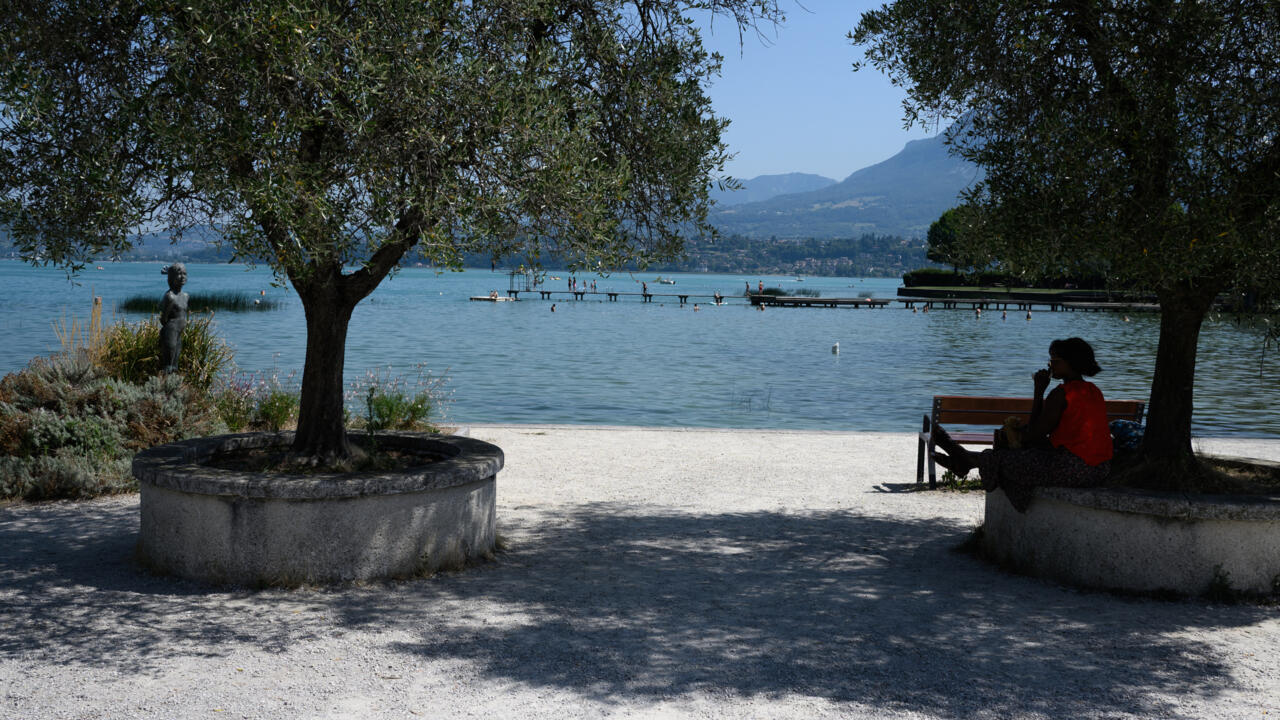
AFRICA
Written by Stylo News: AI-Powered, Multi-Source Global News

Images © their owners, publicly available, for informational purposes.
Map of Events
Events occurred across multiple continents including Europe (France), Asia (Indonesia, Philippines), Africa (Angola, Sao Tome and Principe, Nigeria), and the Middle East (Lebanon).
Locations
Event Updates
UNESCO Designates 26 New Biosphere Reserves Including France's Lake Bourget
Executive Summary
On September 27, 2025, UNESCO announced the designation of 26 new biosphere reserves across 21 countries to address biodiversity loss and climate change. Notable sites include Lake Bourget in the French Alps, home to over 6,100 species, the Raja Ampat archipelago in Indonesia with 75% of Earth's coral species, and the Quiçama reserve in Angola featuring diverse ecosystems. These reserves, expanding UNESCO's global network to 785 sites in 142 countries, integrate human communities with nature, requiring collaboration among scientists, residents, and governments to balance conservation and socioeconomic development. The program also adopted a 10-year strategic plan focusing on climate change impacts. Examples of local engagement include coral reef restoration in the Philippines and mangrove recovery in Sao Tome and Príncipe. Challenges such as habitat loss in Nigeria's Omo Forest Reserve highlight ongoing threats. The initiative underscores biodiversity conservation as vital to sustainable development and economic benefits like ecotourism.
Situation
UNESCO's biosphere reserves program, initiated in 1971, aims to protect fragile ecosystems while supporting local livelihoods. The recent designations reflect a continued expansion and emphasis on integrating human activity with conservation. Lake Bourget's inclusion highlights Europe's rich biodiversity, while Raja Ampat and Quiçama emphasize tropical marine and terrestrial diversity. The reserves support activities like fishing, agriculture, and tourism, with local communities actively involved in management. Scientific efforts include ecosystem restoration and species discovery. However, some reserves face pressures from climate change and human encroachment, such as cocoa farming threatening forest elephant habitats in Nigeria. The program's strategic action plan adopted in Hangzhou, China, aims to enhance monitoring through satellite data and modeling to inform management. The US, with 47 biosphere reserves, plans to withdraw from UNESCO by December 2026, potentially impacting future collaboration.
International Impact
The designation of new biosphere reserves reinforces global commitment to biodiversity conservation and climate resilience. António Abreu, head of UNESCO's program, emphasized that conservation supports socioeconomic development and requires inclusive governance to avoid conflicts. The international community benefits from shared scientific knowledge and ecosystem services preservation. Challenges like climate change affecting over 60% of reserves highlight the need for coordinated global action. The US withdrawal from UNESCO may affect international cooperation, but many countries remain engaged. These reserves contribute to global biodiversity targets and sustainable development goals, fostering ecotourism and local economies while protecting endangered species and habitats.
Decision Maker Perspectives
UNESCO: Promotes biosphere reserves as a model integrating biodiversity conservation with human development, emphasizing collaboration among stakeholders and adopting strategic plans to address climate change.
Local Communities: Engaged in managing reserves, balancing traditional livelihoods with conservation, and benefiting from restoration projects and ecotourism.
US Government: Announced withdrawal from UNESCO citing national interest concerns, potentially reducing US involvement in biosphere reserve initiatives.
Source Perspectives
FRANCE 24: Provides a detailed, neutral report highlighting the significance of the new biosphere reserves and their role in biodiversity and climate change mitigation.
Hezbollah Regroups One Year After the Death of Longtime Leader Hassan Nasrallah in Lebanon
Executive Summary
On September 27, 2025, analysis from Beirut indicates that Hezbollah, the Lebanese Shiite militant and political group, is beginning to regroup a year after its longtime leader Hassan Nasrallah was killed in Israeli airstrikes during the recent war with Israel. The conflict severely weakened Hezbollah militarily and politically, leading many opponents to predict its decline. However, supporters, adversaries, and analysts now observe signs of recovery and reorganization. The group suffered multiple blows during the war, culminating in Nasrallah's death in a Beirut suburb. Despite setbacks, Hezbollah's resilience is notable as it seeks to restore its influence in Lebanon and the region. The analysis includes perspectives from Sami Nader, director of the Levant Institute for Strategic Affairs in Beirut.
Situation
Hezbollah's recent war with Israel resulted in significant losses, including the death of its charismatic leader Nasrallah, which was a major blow to the group's command and morale. The Israeli airstrikes targeted Hezbollah's infrastructure and leadership in Beirut. Following these events, many regional actors anticipated Hezbollah's diminished role. Over the past year, Hezbollah has been quietly rebuilding its military capabilities and political alliances within Lebanon. The group's supporters remain loyal, and it continues to exert influence in Lebanese politics and security affairs. The situation remains tense as regional dynamics involving Israel, Lebanon, and other Middle Eastern actors evolve. Hezbollah's recovery efforts are closely monitored by international observers due to potential implications for regional stability.
International Impact
Hezbollah's resurgence affects Middle Eastern geopolitics, particularly Lebanese-Israeli relations and broader regional security. The group's ability to regroup may influence ongoing conflicts and negotiations involving Israel, Lebanon, and allied states such as Iran and Syria. International actors express concern over renewed tensions and the potential for future conflict. The death of Nasrallah was a significant event that drew global attention, and his absence has altered Hezbollah's leadership dynamics. Regional and global powers continue to watch Hezbollah's activities as they impact peace and security in the Middle East.
Decision Maker Perspectives
Hezbollah: Working to rebuild military strength and political influence following leadership loss and wartime setbacks.
Israeli Government: Conducted airstrikes targeting Hezbollah leadership to weaken the group and reduce its threat.
Lebanese Political Actors: Navigating the complex political landscape influenced by Hezbollah's presence and recovery efforts.
Source Perspectives
FRANCE 24: Provides analytical coverage of Hezbollah's status post-Nasrallah, highlighting the group's resilience and regional implications with a focus on balanced reporting.